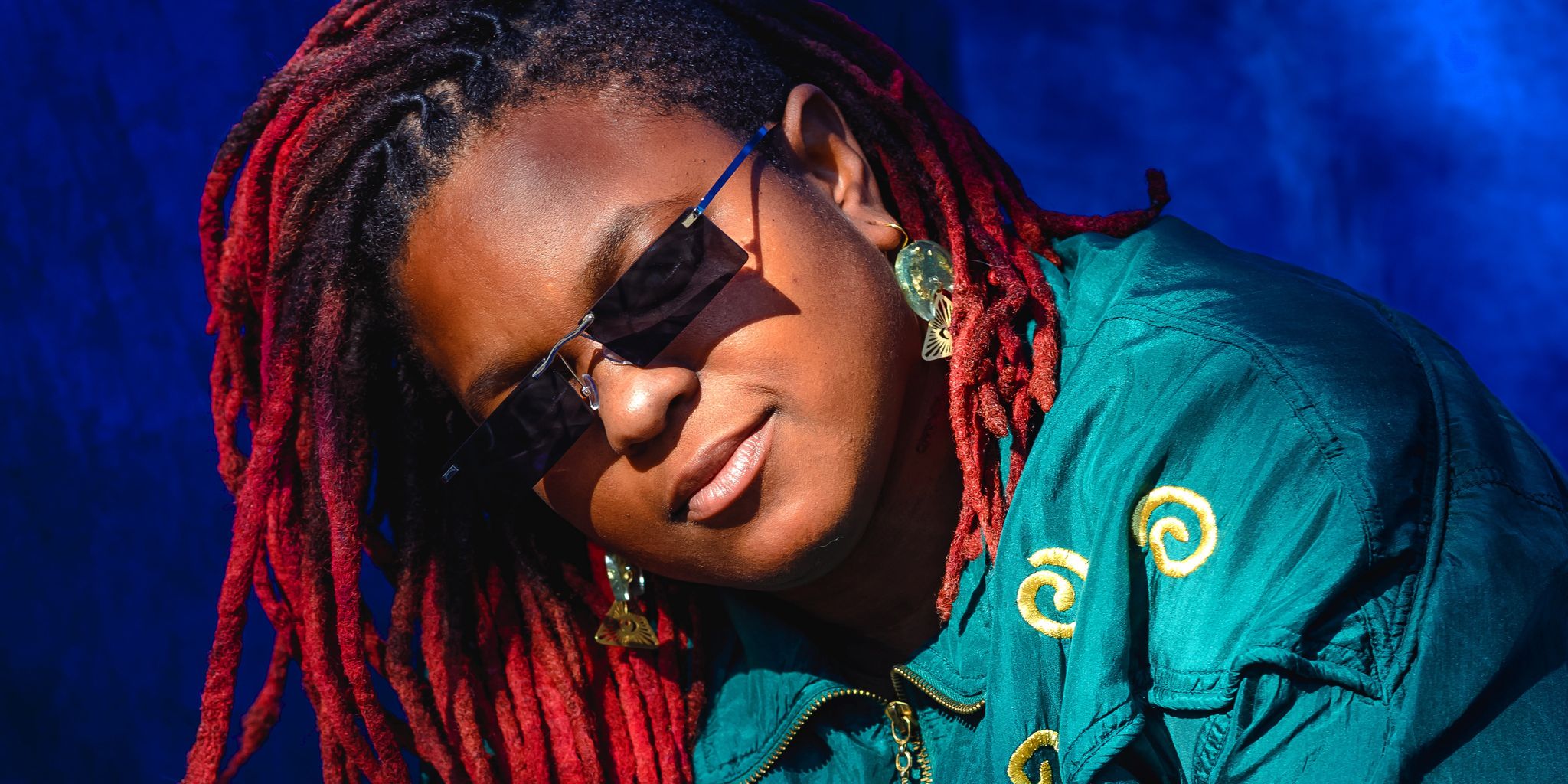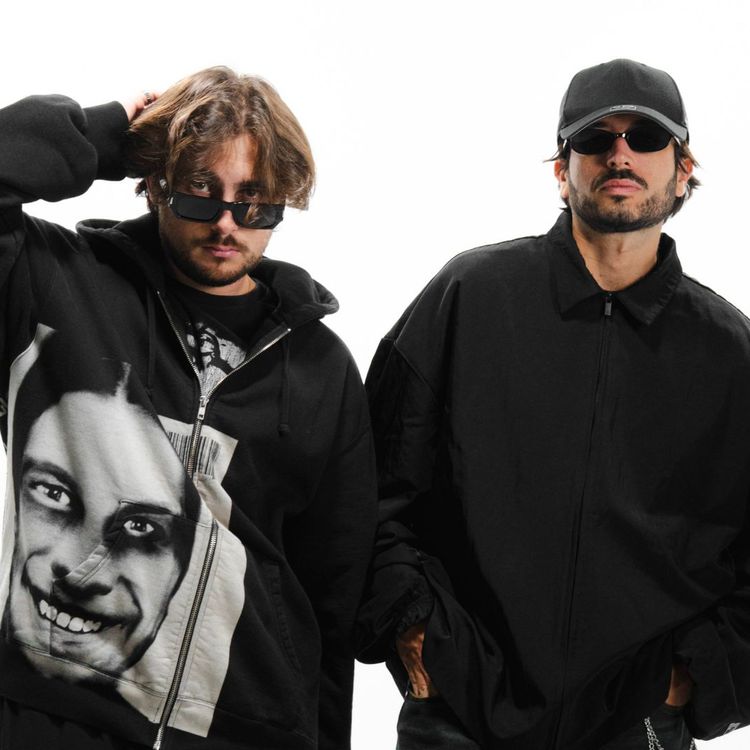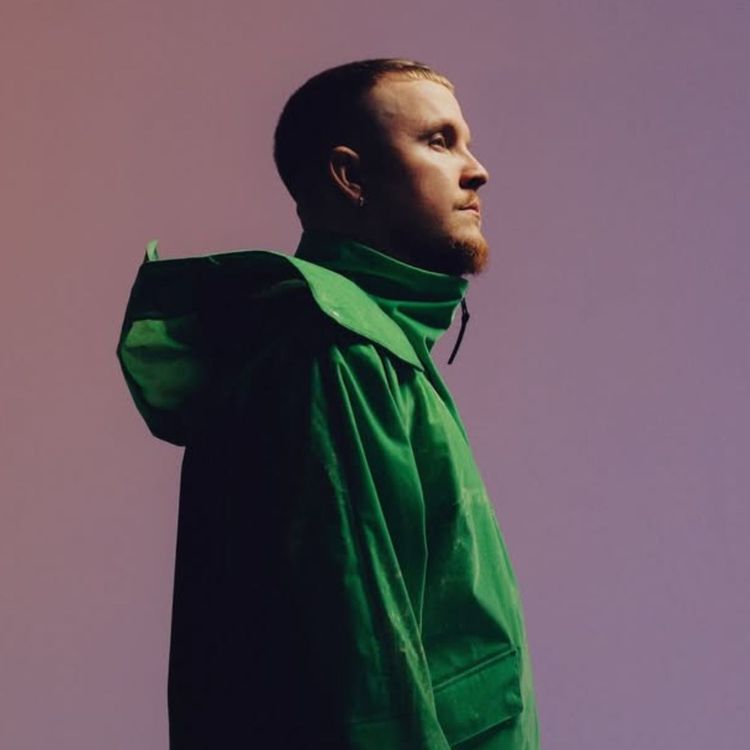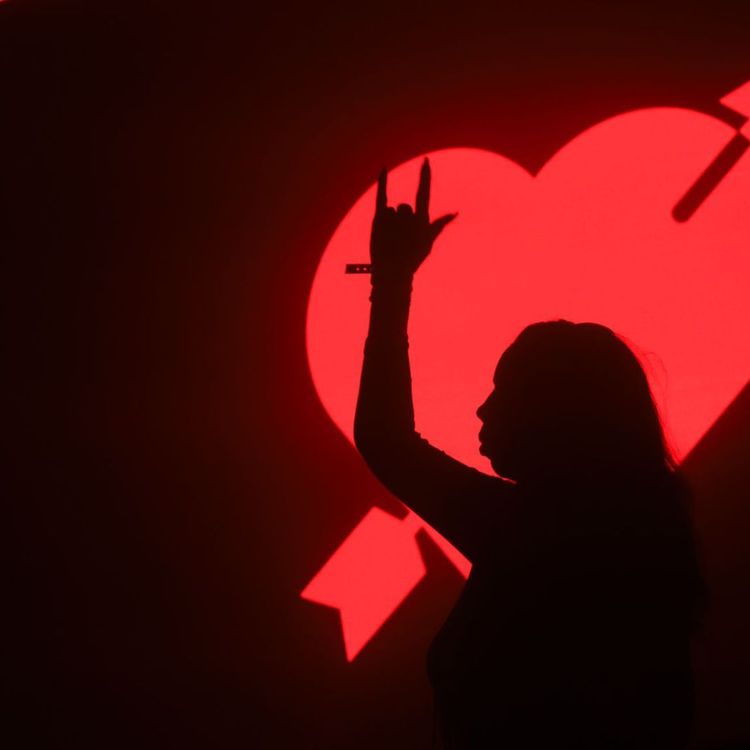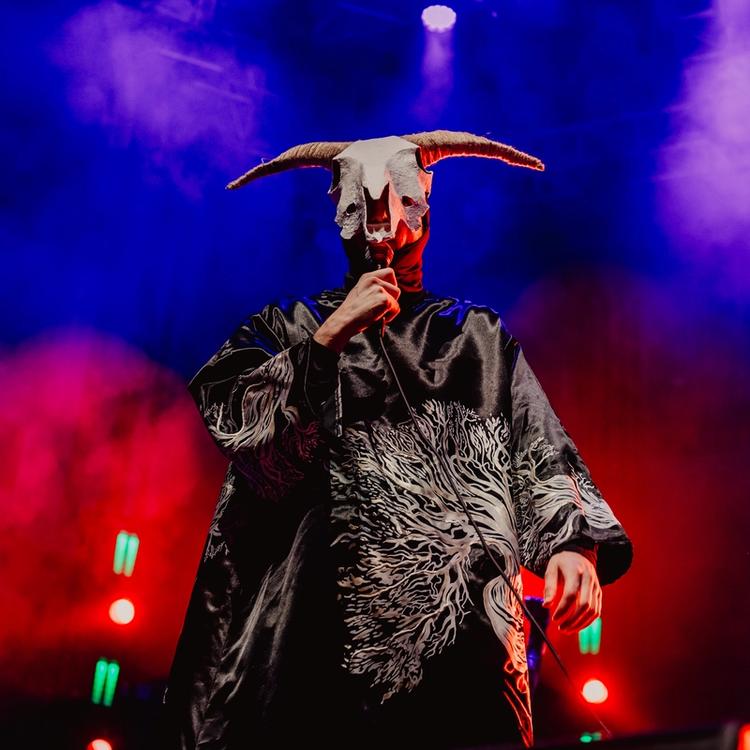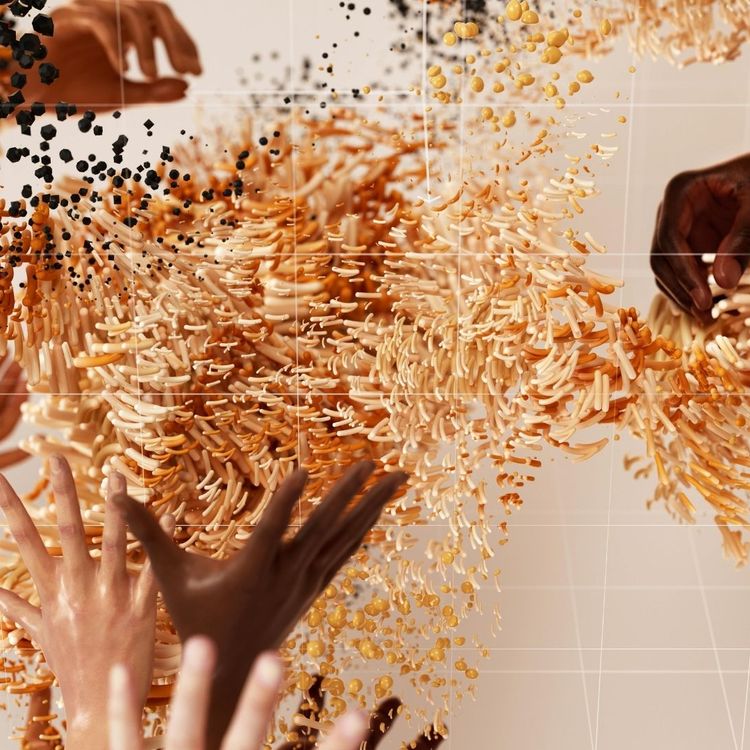Why Dance Music Vocalists Should Be Headliners
Kaleena Zanders is a singular artist. She has a distinct soulful sound, a catalog of successful dance records, and a thriving fanbase. Yet within the music industry, she and a plethora of other immensely talented artists are relegated to the category of "electronic music vocalist."
It is true that Zanders and contemporaries like HALIENE and Anabel Englund initially made their mark contributing vocals to tracks from other electronic artists. However, they are far more than their voices, and it is time they get proper recognition for their art.
"I'm an electronic artist period. 'Vocalist' implies that we're separate. That we're providing a service," Zanders tells Gray Area. "I'm tired of blowing up other people and not having my own career."
On October 27, 2021, Zanders made an Instagram post speaking her truth on the matter.
"EDM Vocalists are artists, songwriters, collaborators, producers, and are just as much an integral part of the dance experience," Zanders wrote in the caption. "So basically, when y'all see a dance vocalist/artist with their own slot or set SHOW DA FUQ UP."
In reality, that's what it will take for artists like Zanders, Englund, and HALIENE to receive proper respect. They have certainly done more than enough for the scene, and people need to show up for them.
Among Zanders, Englund, and HALIENE, they have created cherished music that lives in the hearts of millions. Their voices are the connective tissue between the mortal world and the invisible realm of sonics in a genre that is mostly made with computers.
"When there are vocals, melody, lyrics, the song becomes personal. It becomes imprinted in your mind," Zanders says.
Furthermore, that kind of humanity and relatability has translated to significant commercial success.
Zanders has collaborated with artists like SNBRN, LP Giobbi, Chris Lake, and Breathe Carolina to produce songs with tens of millions of plays on Spotify.
Two of Anabel Englund's vocal collaborations, "Underwater" with MK and "Waiting For You" with Yotto, became Billboard #1 US Dance Airplay Singles.
"Don't Wanna Fall," by HALIENE, Seven Lions, and Last Heroes hit number 20 on Billboard's Dance/Electronic Digital Song Sales Chart. "Rush Over Me," the joint track from HALIENE, Seven Lions, ILLENiUM, and Said The Sky, reached 35.
Their contributions to dance music are immeasurable. Yet booking agents, talent buyers, producers, and fans continue to overlook them as relevant solo acts. It's time that the status quo be changed.
Zanders has experienced significant pushback in the realm of live gigs. Her Instagram post described her experience as an artist and explained why HALIENE's solo live set at EDC Las Vegas 2021 shouldn't be an anomaly.
"She had to fight to be there," Zanders says of HALIENE's performance. "We're electronic artists, why do we have to fight to stand there on stage and do what we do with songs people already know?"
It's a fair question. The answer hinges on profit. When talent buyers book a show, they have to account for all the venue and staff expenses while ensuring the fans enjoy themselves. Every booking is a risk, and to mitigate risk, talent buyers at dance venues will frequently adhere to expected formats such as programming an entire night of DJs.
"It really comes down to the agents and the promoters who are booking what works for that customer, for that environment." says Mark Harris, Englund's manager.
Many in the industry have told Zanders that she needs to DJ if she wants to play live gigs. They insist she has to put her name first on her collaborations. And that she needs to be the "focal point," all, so agents and promoters think she's a fit for a club environment.
"Hearing all these conversations of what I should be doing and how I should be doing it really started to make me jaded," Zanders says. "I should be able to, at the very least, do some opening sets for DJs. Or at a festival I can do a 2PM or 3PM slot. What makes a difference if I have a DJ and I'm singing?"
The formats Zanders mentioned are far from uncommon in the grand scheme of live performance but are a departure from the norm within the dance environment. The programming is still almost entirely DJs at major dance festivals like EDC Las Vegas, Electric Zoo, and Ultra.
Remember, the idea of DJs being the centerpiece is a new phenomenon. They used to be hidden from view while everyone focused on the dance floor. No one would expect a live vocalist with a DJ. The shifting of that needle has opened opportunities for artists like Zanders to rise, but the culture of the past has yet to catch up to her new form of artistry.
"Dance clubs, dance shows, dance festivals. It's very DJ-driven and very DJ heavy. So it's just the culture of what it is," says Harris. "Clubs are totally different than live performance rooms. Two different vibes."
Zanders calls Los Angeles home. It's a massive city with dozens of venues, from clubs to live performance rooms to stadiums to arenas. With so many spaces and such a strong music culture, many, like Avalon Hollywood, for instance, have naturally come to adopt a widespread pallet of programming.
Avalon has a history as a live performance room. It hosted the Beatles first West Coast appearance in 1964, and artists like Soundgarden, Nine Inch Nails, and The Beastie Boys in their heyday have all blessed the stage there. It now frequently caters to DJs. At the time of writing, Walker & Royce, Ben Gold, and YehMe2 all had upcoming events.
The booking team at Avalon is comfortable taking risks on different formats. On November 13, 2021, Zanders opened for Cedric Gervais. This may be a "gamble" for other venues, but they showed up for her. The fact that she made her name through her voice was not a concern at all.
"We've done far more dangerous things than that," jests says Brig Dauber, Entertainment Director at Avalon Hollywood, over Zoom.
Zanders performed with a backing DJ on the night in question while she sang her tracks. Carle Clayburgh, Artist Relations Manager at Avalon Hollywood, recalls that the night was a smash hit. A packed house. Bartenders and other staff members texted her about how much they loved the set.
"A lot of the crowd was there for her," says Clayburgh. "I knew she had a catalog of her own songs, and she's such a personality and she's such an entertainer. It was never a question of 'What if she only sings?' because she's so much more than a vocalist."
Dauber mentions that he did expect Zanders to "DJ a bit" after the fact of booking her, but he was glad she didn't.
"She is bridging a gap. Most vocalists stay vocalists and that's it. She really partied with everybody and that added another dimension," says Dauber.
So, as it turned out, booking Zanders was not a risk. On the contrary, it was hugely profitable, and the dance crowd loved it. After all, before performing her own set at Avalon, Zanders had proved her metal performing as a guest numerous times. She's performed at Sound Nightclub for Space Yacht, EDC Las Vegas with LP Giobbi, and Coachella with AC Slater.
AC Slater and LP Giobbi are just two of the dozens of producers with whom Zanders has provided vocals on a collaboration. Amongst the producer community, she is more than just well known, she is in demand, but producers can still do their part to show up for her.
Because she gets labeled an "electronic music vocalist," other producers often see Zanders as a means to an end. They want her voice to help their track, and that's it. They don't see her as a fellow artist.
"The amount of people who will hit me up every day or every week, it's harassment," Zanders says. "I could say 'Hey I'm not doing any features right now.' I could say 'I'm working on my solo stuff.' I could say anything and people will still ask, but that's how important a vocal is."
For producers, showing up for Zanders and her fellow artists is to treat them as equals in the process. To understand their value and respect the time and effort they give to you.
Zanders has built that relationship with the ascending house music duo, Win and Woo, made up of Nicholas Winholt and Austin Woo. Together with Zanders, they produced "Right In Front Of Me," their 2019 single on IN/ROTATION, and at the time of writing, have several works in progress coming soon.
Winholt first met Zanders through J. Worra, an impressive house artist who collaborated with Zanders for "On The Run." Instead of immediately asking Zanders to sing on one of his productions, Winholt invited her to work on music together, putting time into both of their projects.
"[Zanders and I] hit it off in general. I liked her vibe," says Winholt. "It's more fun if you can make a friendship out of it first. I think the deeper you get to know somebody, the easier it is to get those ideas out."
After being on the receiving end of disrespect from producers for many years, Zanders has set down certain principles for collaborating. First and foremost, she is always in the room with the producers. They create the music together.
"I like to be in the room with the person because then it establishes that track is ours. It says 'I'm going to listen to you and what you like, and you're going to listen to me and what I like.'," Zanders says.
When Zanders is in the room, she also contributes to components beyond her vocal, engaging in what she calls the "Rick Rubin style" of producing. She doesn't press the buttons, but she knows what she wants from the track. She knows where she wants the hi-hats, the string-line, and how everything should support her voice.
"Whether it's her song or our song or a song for somebody else she definitely has her own ideas that she wants to hear," says Woo. "It's really nice to have someone who's vocal about what they want in the creation process because outside of that it's just our perspective. She's also good at doing the opposite. If we have vocal ideas like melodies she's super receptive to those, too."
At the end of the day, it's about trust. When there is a foundation of trust, collaborative relationships continue, and everyone benefits equally, as is the case with Anabel Englund.
Englund has collaborated repeatedly with artists like Jamie Jones, MK, and Lee Foss throughout her career. Englund and Foss have not only worked together on music, but the two have shared bookings on international tours, with Foss DJing and Englund providing live vocals.
"When I work with producers I am very trusting of their capabilities & I seek to work with them specifically for their personal style and flavor," says Englund in answers provided over email.
Personal style and flavor are also why fans enjoy Englund and Zanders. That's why so many producers want to work with them. That's why their music has reached millions of people and led to real charting success. That's why everyone goes crazy when they come out on stage.
So, while they continue to give their entire soul to their craft, the dance community can do their part to deliver these opportunities. Buy the ticket to their show. Check out their set at a festival. Stream their music. Follow them on social media.
Larger forces within the music industry pay attention to these metrics, and the community has the power to lift these artists who have given so much to the scene. Essentially, as Kaleena Zanders would say, "SHOW DA FUQ UP."
